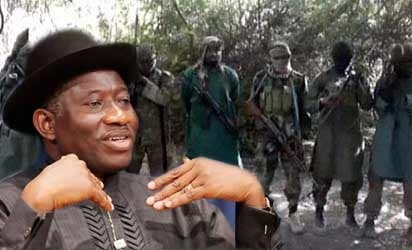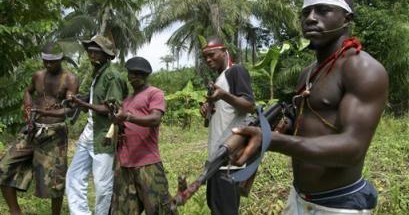Secretary General for (UNDEDSS) speaks on Boko Haram Amnesty Commitee
SECRETARY General of the United Niger Delta Energy Development Security Strategy (UNDEDSS), Mr. Tony Uranta, Sunday described the agitations trailing the Federal Government’s Amnesty Committee as unnecessary, stressing that only the restructuring of Nigeria would guarantee end to terrorism in the nation.
Speaking at a press conference, Uranta said the agitations and criticisms that have trailed the amnesty committee were uncalled for, stating: “I am amused at the level of agitation over the Federal Government’s decision to set up a committee to work out modalities for a possible amnesty to Boko Haram.”
In a similar vein, leader of the Northern Civil Society Coalition, Mallam Shehu Sani, has warned President Goodluck Jonathan not to waste the nation’s resources by sinking billions of naira into amnesty for Boko Haram unless the insurgents agree to a ceasefire.
Besides, he said, the insurgency in the North might continue unless the leader of Boko Haram, Sheikh Shekau, and members of the Islamic militant sect accept the move and are incorporated into the committee being set up by the Federal Government for amnesty.
Insisting that the Federal Government’s step was good, Uranta, however, said the feasibility and success of the plan depended on Boko Haram ending the hostilities.
He said people should understand the terms of the committee first before condemning it, noting: “I find it unbelievable that discerning pundits equate this to the Federal Government granting Boko Haram amnesty. If I ponder over taking a wife, does that mean I’m married?
“Who will be the Boko Haram that will dialogue with anybody? Has Al-Qaeda ever dialogued? Do you see any terrorist in Afghanistan, Iraq, Pakistan and others lining up to be biometrically registered?”
Reiterating his earlier position that the terrorists’ threat to Nigeria was not merely Nigerians-driven but influenced also from outside the country, he added: “I see the committee issue as government showing putative goodwill, but I foresee the whole thing being an exercise in futility because of the fundamentals of this type of sectarian terrorism worldwide.”
Meanwhile, Sani, who spoke Sunday in Kaduna in reaction to the calls for amnesty for the group, pointed out that “those who are currently agitating for amnesty for the sect were doing so for selfish reasons, “and we all are witnesses to the fact that there were past moves and promises made by the same traditional rulers and northern leaders, only for the bombings and attacks to intensify later.”
According to him, “the insurgents are most likely to dismiss the committee set up by the Federal Government and the amnesty as long as it is not constituted with their input. And again, Nigerians must be very cautious about setting up an amnesty commission, which will simply be conduit pipe for siphoning billions of tax-payers’ money in the name of rehabilitating insurgents and militants.”
He added: “Amnesty will make no meaning until and unless the leader of the Boko Haram group, Abubakar Shekau, gives his approval for it because all insurgents take directives from him and their council.”
According to the civil rights activist, for any such programme to succeed, “there is need to set up a committee that is recognised by government and accepted by the Boko Haram sect, and the committee should also comprise the leaders of five Islamic sects in northern Nigeria,” he said.
Sani listed the Islamic sects to include the Izala, Derika, Shittes, Hamadiyya and Tijaniyya, adding: “There should be a representative of the Jama’atu Nasir Islam (JNI) and Supreme Council of Shariah in Nigeria and a freelance journalist, in the name of Ahmed Salkida.”
This committee, he said, “would first extract a commitment of a ceasefire from the side of the insurgents and must extract commitment from security agents to abide by the ceasefire. Issues like amnesty would be addressed after a thorough evaluation of the damage and number of victims that fell to the insurgency.
“And there should be discussion addressing the root cause of the insurgency, which has to do with the extra-judicial killing of their leader, late Mohammed Yusuf, and other leaders of the sect. And this committee should be given access to all the detainees, who have been arrested and detained on suspicion of being members of the Boko Haram Islamic sect.”










